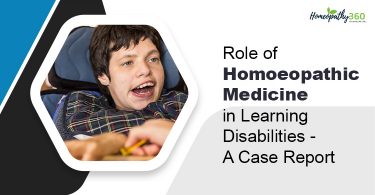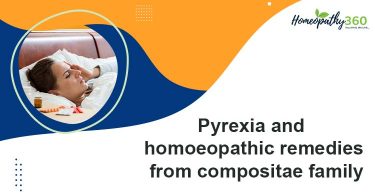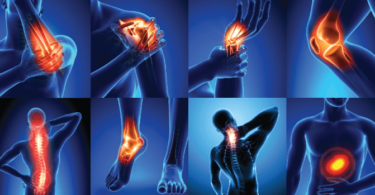
Role of homoeopathy in hypothyroidism
Abstract : Hypothyroidism or underactive thyroid is a common clinical condition characterized by less production of thyroid hormones by thyroid gland due to various causes. Thyroid hormones are very essential for many physiological functions of the body and its deficiency leads to many health-related problems ranging from asymptomatic disease to myxoedema coma. This article reviews various causes of hypothyroidism, its clinical presentation, investigations required and role of homoeopathy in hypothyroidism.
Key words: Hypothyroidism, triiodothyronine, thyroxine, primary hypothyroidism, secondary hypothyroidism, myxoedema, levothyroxine
Abbreviations: triiodothyronine (T3), thyroxin (T4), thyroid releasing hormone (TRH), thyroid releasing hormone (TRH), example (e.g.)
Introduction:
Thyroid glands are butterfly shaped glands in the neck. It produces three hormones namely, triiodothyronine (T3), thyroxin (T4) and calcitonin. Out of these hormones, T3 and T4 are main thyroid hormones, deficiency of which causes hypothyroidism whereas calcitonin is involved in calcium metabolism. Thyroid hormones play a vital role in regulating the body’s metabolic rate. The thyroid hormones impart its effects on almost every cell of the body including the functioning of the digestive system, Heart, brain, reproductive system, muscles, bones, etc. The secretion of thyroid hormone is regulated by thyroid releasing hormone (TRH) from hypothalamus and thyroid stimulating hormone (TSH) from anterior pituitary gland.
Hypothyroidism refers to less production of thyroid hormones. It is a common clinical condition affecting women six times more frequently than man. Hypothyroidism can occur either due to some causes related to thyroid gland itself or due to pathologies involving pituitary gland and hypothalamus.
Prevalence (1)
Around 12-13% of population worldwide are suffering from abnormal thyroid functions, and around 2% of population suffer from hypothyroidism.
Women are six time more prone to have hypothyroidism than men. Though it affects middle aged or older people, it may affect infants as well as children.
Causes of hypothyroidism (2): can be classified into three types:
- Primary hypothyroidism: Hypothyroidism due to causes related to thyroid gland itself. Causes of primary hypothyroidism are:
- Autoimmune: Hashimoto’s thyroiditis
Spontaneous atrophic hypothyroidism
Grave’s disease with TSH receptor antibodies
- Iatrogenic: Radioactive iodine ablation
Thyroidectomy
Drugs – Carbimazole, methimazole, Lithium, Amiodaron
- Transient thyroiditis: Subacute (de Quervain’s) thyroiditis, Post- partum thyroiditis
- Congenital: Dyshormonogenesis
Thyroid aplasia
- Infiltrative: Amyloidosis, Reidel’s thyroiditis, sarcoidosis, etc.
- Iodine deficiency, e.g. in mountainous region
- Secondary hypothyroidism: hypothyroidism due to pathologies involving pituitary gland and hypothalamus causing TSH deficiency, e.g. Pituitary adenoma.
Clinical Features (2):
Hypothyroidism usually develops very slowly over years, hence in early stage of disease most of the cases remain asymptomatic and hence remain undiagnosed. Hypothyroidism has many symptoms ranging from asymptomatic disease or very vague symptoms to myxoedema coma. Clinical features of hypothyroidism vary from person to person.
Following are important sign and symptoms of Hypothyroidism:
Common symptoms:
- Weight gain
- Cold intolerance
- Fatigue
- Dry skin
- Dry hair
- Menorrhagia
Less common symptoms
- Constipation
- Hoarseness
- Carpal tunnel syndrome
- Alopecia
- Aches and pains
- Muscle stiffness
- Deafness
- Depression
- Infertility
Signs
- Anaemia
- Carotenaemia
- Periorbital oedema, malar rash, purplish lips
- Bradycardia, hypertension
- Delayed relaxation of reflexes
- Goitre
Rare symptoms:
- Psychosis (myxoedema madness)
- Galactorrhoea
- Impotence
Signs
- Ileus, ascites
- Pericardial and pleural effusion
- Cerebellar ataxia
- Myotonia
Investigations and diagnosis: For diagnosis of hypothyroidism, serum TSH levels are usually checked.
In subclinical hypothyroidism, TSH levels are elevated, and free T4 levels are normal
In primary hypothyroidism, serum T4 is low and TSH is elevated.
In secondary hypothyroidism of pituitary or hypothalamic origin, TSH produced can be biologically inactive and can affect the levels of bioactive TSH, hence the diagnosis of secondary hypothyroidism should be based on free T4 rather than TSH.
For diagnosis of autoimmune thyroid disease, levels of anti-thyroid antibodies such as thyroid peroxidase antibodies should be investigated.
Prognosis (3): If left untreated, hypothyroidism may have a risk of high morbidity and mortality. It can eventually lead to coma or even death. In children failure to treat hypothyroidism can result in severe mental retardation. A leading cause of death in adult is heart failure. With treatment, most patients have good prognosis.
Complications (4): Hypothyroidism can contribute to high cholesterol. Rarely, severe untreated hypothyroidism may lead to myxoedema coma, an extreme form of hypothyroidism in which the body’s function slow to a life – threatening point. Myxoedema coma requires immediate medical treatment.
Management: As in hypothyroidism there is less production of thyroid hormones, administration of synthetic thyroid hormones from outside can be one way to manage hypothyroidism. This is the conventional method of treating hypothyroidism. In this method patient has to administer Levothyroxine throughout his life.
And there is one another way, in which thyroid gland is stimulated to secrete adequate thyroid hormones naturally by medicines. This is where the homoeopathy can play an important role.in homoeopathy, individualized homoeopathic medicines are used to stimulated thyroid gland so that it can secrete its hormones naturally.
The individualised homoeopathic treatment is based on the study of the patient’s sign and symptoms, the duration of illness, extent of disease, cause, genetic pattern, past history, physical generals and mental generals of the patient and other factors which causes or maintain the disease.
The homoeopathic treatment is effective only if the thyroid gland has some inherent capacity to get activated.
Commonly prescribed homoeopathic medicines with their indications (5,6)
Although homoeopathic medicines are selected after individualised case study, following medicines are commonly prescribed in case of hypothyroidism:
Baryta carbonicum: Scrofulous, dwarfish children who do not grow. Person takes cold easily. Memory deficient, forgetful, inattentive, threatened idiocy, swelling and induration of glands. Scanty menses, constipation, hoarseness, hypertension.
Calcarea carbonicum: action on glands. Pituitary and thyroid dysfunction. Increased local and general perspiration, scrofulous and rachitic condition. Great sensitiveness to cold. Apprehensive, worse towards evening, fears loss of reason, misfortune. Forgetful and confused. Children craves eggs, eat dirt and other indigestible things. Calcarea patient is fair, fat, flabby, perspiring, cold, damp and sour. Feels better when constipated.
Kalium carbonicum: it is especially indicated in fleshy, fat, light complexion people subjected to catarrhal or with syphilitic or scrofulous history. Symptoms are worse in morning. Aches and pains. Pain migrate quickly. Hoarseness. Weakness after labour, abortion and metrorrhagia. Anaemia. Bag like swelling between the upper eyelids and eyebrows. Great aversion to being alone. Constipation
Thyroidinum: Myxoedema and cretinism. Marked sensitiveness to cold. Hypothyroidism after acute disease. Weakness, easy fatigue, weak pulse, low blood pressure. Chilliness. Skin dry and impoverished.
Natrum muraticum: thyroid function disturbances due to prolonged intake of excessive salt causing anaemia, leukocytosis. Great weakness and weariness. Depressed. Consolation aggravates. Ill effects of grief, fright and anger. Menses irregular. Constipation.
Sepia: more pronounce effect on women with weakness, yellow complexion and bearing down sensation. Indifference to loved ones. Feels cold even in a warm room. Menstrual irregularities. palpitations. constipation.
Silicea terra: action on glands. Scrofulous, rachitic children. Complaints caused by bad effects of vaccination or suppressed foot sweat. Cold intolerance. Great weakness or debility. Mental labour difficult. Offensive perspiration. Constipation.
Other medicines: Iodum, Spongia tosta, Aethusa cynapium, Calcarea phosphoricum.
Conclusion: Homoeopathy has a vital role in treatment of hypothyroidism. With homoeopathic treatment, hypothyroidism can be cured permanently.
References:
- Life force homoeopathy, underactive thyroid, and its homoeopathic management [Internet] cited on 21 June 2021. Available on:
lifeforce.in/underactive-thyroid.aspx
- Stanley Davidson, “Davidson’s principles and Practice of medicine”, 22nd edition, Churchill Livingstone Elsevier, published in 2014.
- Patil N, Rehman A, Jialal I. Hypothyroidism. In: StatPearls [Internet]. StatPearls Publishing; 2020. Updated August 10, 2020. Accessed 21 June 2021. Available on: www.ncbi.nlm.nih.gov/books/NBK519536
- National Institute of Diabetes and Digestive and kidney Diseases, Hypothyroidism (underactive Thyroid)
, updated March 2021, Accessed 21 June 2021. Available on:
www.niddk.nih.gov/health-information/endocrine-disease/hypothyroidism
- Henry C. Allen, M.D. “Allen’s Keynotes Rearranged and Classified with leading remedies of the Materia Medica and Bowel Nosodes” 10th edition. New Delhi; B. Jain publishers (P) LTD; 2005.
- William Boericke, M.D. “Boericke’s New Manual of Homoeopathic Materia Medica with Repertory, 3rd Revised, and Augmented edition based on 9th edition. New Delhi; B. Jain publishers (P) LTD; 2016.
About Author:
Dr Shweta Tiwari PGT (final year)
Department OF CASE TAKING AND REPERTORY
State NATIONAL HOMOEOPATHIC MEDICAL COLLEGE AND HOSPITAL, Lucknow





